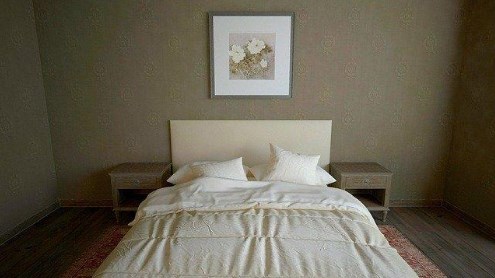Signs It’s Time for a New Mattress
 Having the right mattress to lie on every day is incredibly important. We rest our minds and bodies in bed and don’t want to disturb our sleep too often because we can’t get comfortable anywhere on the mattress.
Having the right mattress to lie on every day is incredibly important. We rest our minds and bodies in bed and don’t want to disturb our sleep too often because we can’t get comfortable anywhere on the mattress.
A mattress isn’t something we buy very often because it tends to last around a decade, but knowing when your current product is on its “last legs” and needs replacing is crucial. You may need to upgrade your product pretty soon, so check out some prime signs that your mattress has had much better days.
Your Current Mattress is Sagging or Lumpy
Start searching for a new natural mattress or other options if you notice that your current product is sagging. This is a clear sign that it’s past its prime and that the memory foam in it may be losing its shape or the coils inside weakened. If you look at your mattress and see a noticeable impression on it from your body, the indentation should tell you that it’s time to go shopping.
Similarly, do you find it challenging to get to or stay asleep because your mattress is uncomfortable due to lumpiness? If so, the only real solution is swapping the old one out for a new, smooth product. You might like to try flipping the mattress first to see if you can create a temporary fix that’s better for your body, but a more durable solution will always be buying something brand new.
You Wake Up in Pain
Another evident sign that your mattress needs replacing is if you wake up in pain every morning. It may be, for instance, that your bed has become too soft and therefore isn’t good for your back, neck, shoulders, hips, etc., or it could be that the item was never the right fit for your body anyhow.
You may also be sleeping on a product that doesn’t suit your sleeping style. For instance, if you’re a side sleeper, you need a reasonably soft, plush bed into which you can sink your shoulders for comfort and good posture. Anything too firm can lead to issues because you’ll hurt your shoulder and be out of alignment.
You Get Too Hot in Bed
Are you sick of waking up in the middle of the night covered in sweat because you’re getting too hot lying on your mattress? If so, it may be time to look for an alternative solution. Of course, the issue may be that you’re wearing pajamas that are too heavy or have too many layers of bedlinen and quilts, blankets, etc., for comfort, or your bedroom may be too hot.
In some cases, though, the problem stems from your mattress, so you’re never going to get a good night’s sleep until you replace it. Materials soften over time and restrict airflow on the surface, creating more heat in turn. Plus, some materials and mattress designs naturally lead to more heat production. For example, memory foam or latex that you sink into can make you more inclined to get hot overnight.
There are Visible Signs of Wear
Sometimes we can tell we need a new mattress soon because our current one is visibly worn. If you can see that your bed is stained with sweat, other fluids, dirt, dust, etc., it is beyond its prime and likely quite old anyway. You might also notice tears, rips, or holes in the mattress, smell funny odors coming from it, or hear it make strange squeaking or grinding sounds when it has no good reason to.
that your bed is stained with sweat, other fluids, dirt, dust, etc., it is beyond its prime and likely quite old anyway. You might also notice tears, rips, or holes in the mattress, smell funny odors coming from it, or hear it make strange squeaking or grinding sounds when it has no good reason to.
Smells can occur due to a build-up of mold, mildew, or fungi in the mattress, especially if you live in a humid area, while weird screeching metal sounds could suggest issues with loose or broken coils. Plus, you might even get annoyed by springs that seem to be digging into you when you’re lying down or that visibly poking out of the mattress. All of these things indicate you should replace your mattress sooner rather than later.
Other clear signals that you should replace your mattress are if your allergies keep flaring up when you sleep or lay on the current one if it’s more than eight or ten years old, and if you generally always prefer sleeping on other mattresses (such as those in hotels or at friends’ places, etc.) than your own.
Don’t delay in purchasing a new product as a bed is one of the essential products we use in the home. It has a huge impact on sleep, general health, and well-being.





